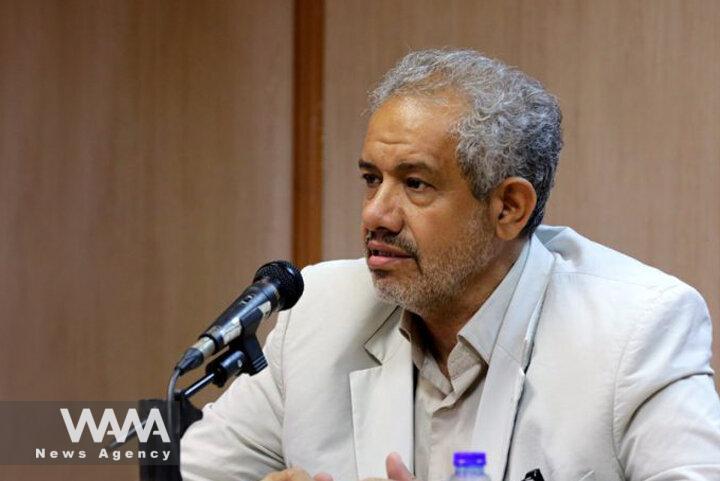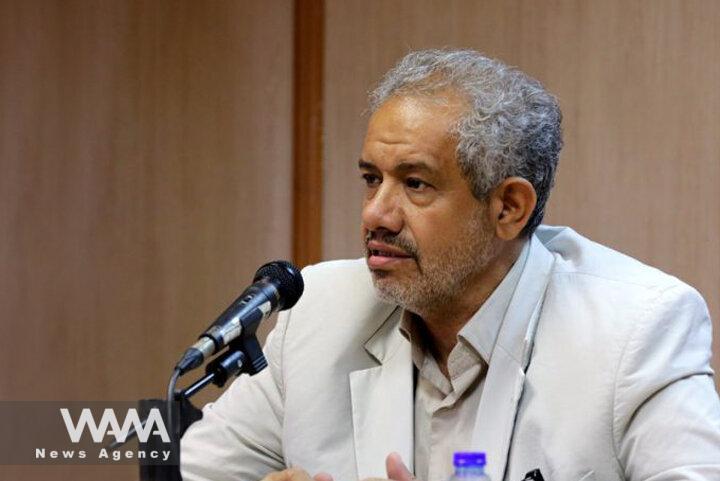True voice of the people is the one raised against oppressive global power
WANA, Feb 16 (Leader Office) – In the following interview, Dr. Ali Entezari, associate professor of Sociology at Allameh Tabataba’i Univ., attempts to discuss the concept of “the voice” of the Iranian nation.
Question: Sometimes, when there is a riot in a corner of the country, some people say that the voice of the Iranian nation should be heard. What do you think are the motives of these people? Which voice can be called the voice of the Iranian nation?
A. Entezari: Those who believe that the voice of the protesters are not heard and advise the government to listen to the voice of the opposition do not have a correct analysis and have misunderstood the issue. We live in a transnational world, and our actions and reactions must be analyzed at a global level. Today, there is one hegemonic pole in the world that has tried to mold all societies and imposes a secular lifestyle on both the Western world and other countries. Thanks to the Islamic Revolution and the religious desire of the people, our society has stood up against this domination and its lifestyle. Therefore, the true voice of the people is the voice of those who stand up against the oppressor and the voice of those who persevere. Those who do not understand this angle of the analysis, do not understand which side the revolutionary side is and which one the oppressor side is. The oppressor is the global capitalist system that uses force and power in various ways to remove the obstacles in front of it with these acts of domination, and the revolutionaries are the group that stands against this oppressor.
If someone within the country has lost their spirit of perseverance, they cannot be regarded as part of a movement. Some analysts mistakenly call these riots a social movement. While basically, the recent riots are not a movement and do not pursue a movement. They seek freedom from perseverance and not freedom from domination. If we analyze these events correctly, we will find out which group has a voice to raise and which group does not. Those who say that we are tired of the slogan of “Down with the USA” and of perseverance in face of domination are those who welcomed the JCPOA wholeheartedly and only later realized that it was nothing more than a mirage. The same people are protesting now, not against domination and oppression, but against perseverance to overcome domination. Those who are regarded as the voice of the people are the same groups that give authority to the Westerners and say that we should give up the ideals of the Islamic Revolution and join the system of domination so that we can take our share in this existing world order and be content with our own small share of slavery.

Dr. Ali Entezari, associate professor of Sociology at Allameh Tabataba’i Univ – Social Media / WANA News Agenc
Question: What is at the core of such demands that the Western media wish to establish as those of the Iranian nation?
A. Entezari: Of course, the voice of the protestors must be heard, and this does not contradict the fact that the communication channels in the society should be so strong that the voices of different groups would be heard and the conditions are met for the communication channels to become numerous, so that social groups and strata can express their demands through them. We have this defect in our communication channels, but these kinds of demands that are sometimes raised, such as removing the hijab, are in accord with the secular lifestyle and the global domination system. These demands are the same as what Biden and Macron put forward in a meeting under the title of human rights in Iran, and they are not of the revolutionary, perfectionist, or transcendental kind. They are not looking for a transcendental lifestyle. They are looking for a lifestyle whose elements are laziness and fatigue, and in fact, they are looking for a life that they think is the Western lifestyle. Their desire is more toward what is reflected in the Western media. They like it regardless of the consequences and complications.
Question: Another noteworthy point that exists in this context is that a part of the self-proclaimed intellectual community does not see events such as the passionate marches on the 13th of Aban and the 22nd of Bahman of this year, the funerals of martyrs in different years, and even the grandiose funeral of General Soleimani. What is your analysis?
A. Entezari: The intellectualism in question is not intellectualism in the true sense of the word. Because, for example, forty or fifty years ago, the issue of power was a national issue, and intellectualism was regarded as a criticism of power. But when the processes became transnational and the world went toward becoming transnational, in such a condition, power acquires a transnational and trans-territorial aspect. Currently, intellectualism, in the sense of criticizing the national power, is a kind of coordination with the transnational power. This kind of intellectualism is therefore bowing to and acting in accordance with the transnational power, and it is not called intellectualism at all. people voice
The self-styled intellectuals in this period criticize and undermine those who oppose the oppressors, and this is an act of being an agent of power and the capitalist system, it does not matter whether one is Marxist or Liberal, because they are the agents of the global domination system. Therefore, for this reason, they look at these national events with condescension, because they are in the opposite direction of resistance and do not tolerate resistance against domination at all.
Even if they have a criticism of the global domination system, it is a conciliatory criticism from within it, like the environmental movements that want the capitalist system – the global agenda which is the cause of destruction – to remain intact but the rights of minorities to be respected or the environment to be preserved. For example, they are concerned about and want the preservation of a species and want attention to be paid to minorities but only within the framework of the domination system.
In such a situation, the ruling system in Iran is a revolutionary system and wants to transform the global domination system. These intellectuals oppose any opinion and movement that is in the favor of transformation and against the global domination system, and they support groups that act against the resistance group.
Source: Khamenei.ir












